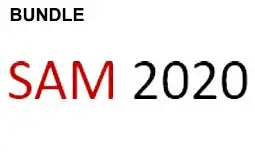Parallel Factor Decomposition Channel Estimation in RIS-Assisted Multi-User MISO Communication
Li Wei, Chongwen Huang, George C. Alexandropoulos, Chau Yuen
-
Members: FreeSPS
IEEE Members: $11.00
Non-members: $15.00Length: 12:31
10 Jun 2020
Reconfigurable Intelligent Surfaces (RISs) have been recently considered as an energy-efficient solution for future wireless networks due to their fast and low power configuration enabling massive connectivity and low latency communications. Channel estimation in RIS-based systems is one of the most critical challenges due to the large number of reflecting unit elements and their distinctive hardware constraints. In this paper, we focus on the downlink of a RIS-assisted multi-user Multiple Input Single Output (MISO) communication system and present a method based on the PARAllel FACtor (PARAFAC) decomposition to unfold the resulting cascaded channel model. The proposed method includes an alternating least squares algorithm to iteratively estimate the channel between the base station and RIS, as well as the channels between RIS and users. Our selective simulation results show that the proposed iterative channel estimation method outperforms a benchmark scheme using genie-aided information. We also provide insights on the impact of different RIS settings on the proposed algorithm.



